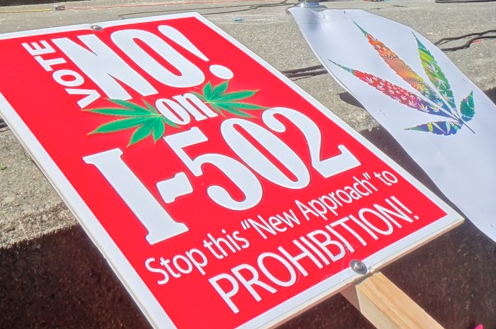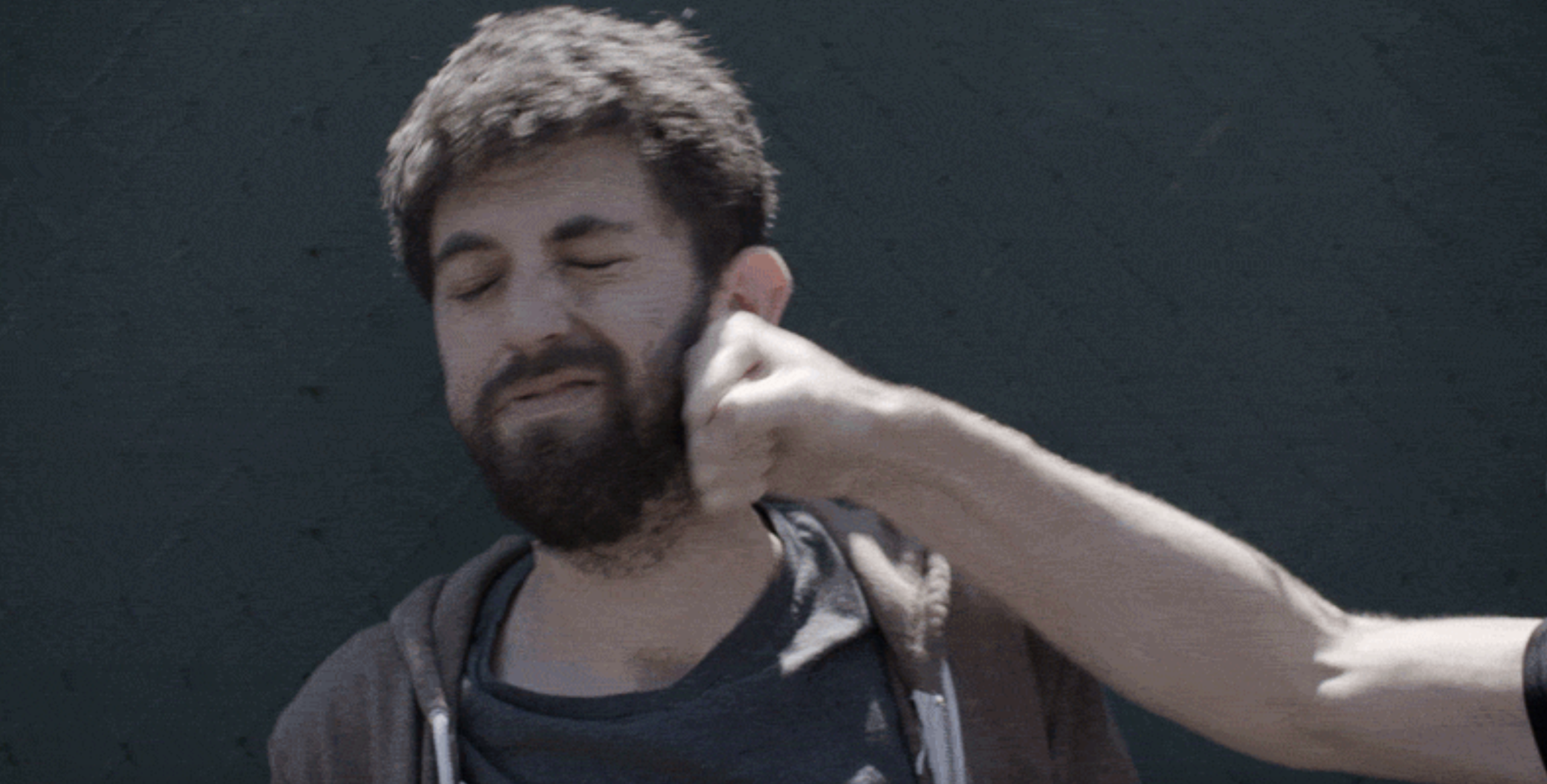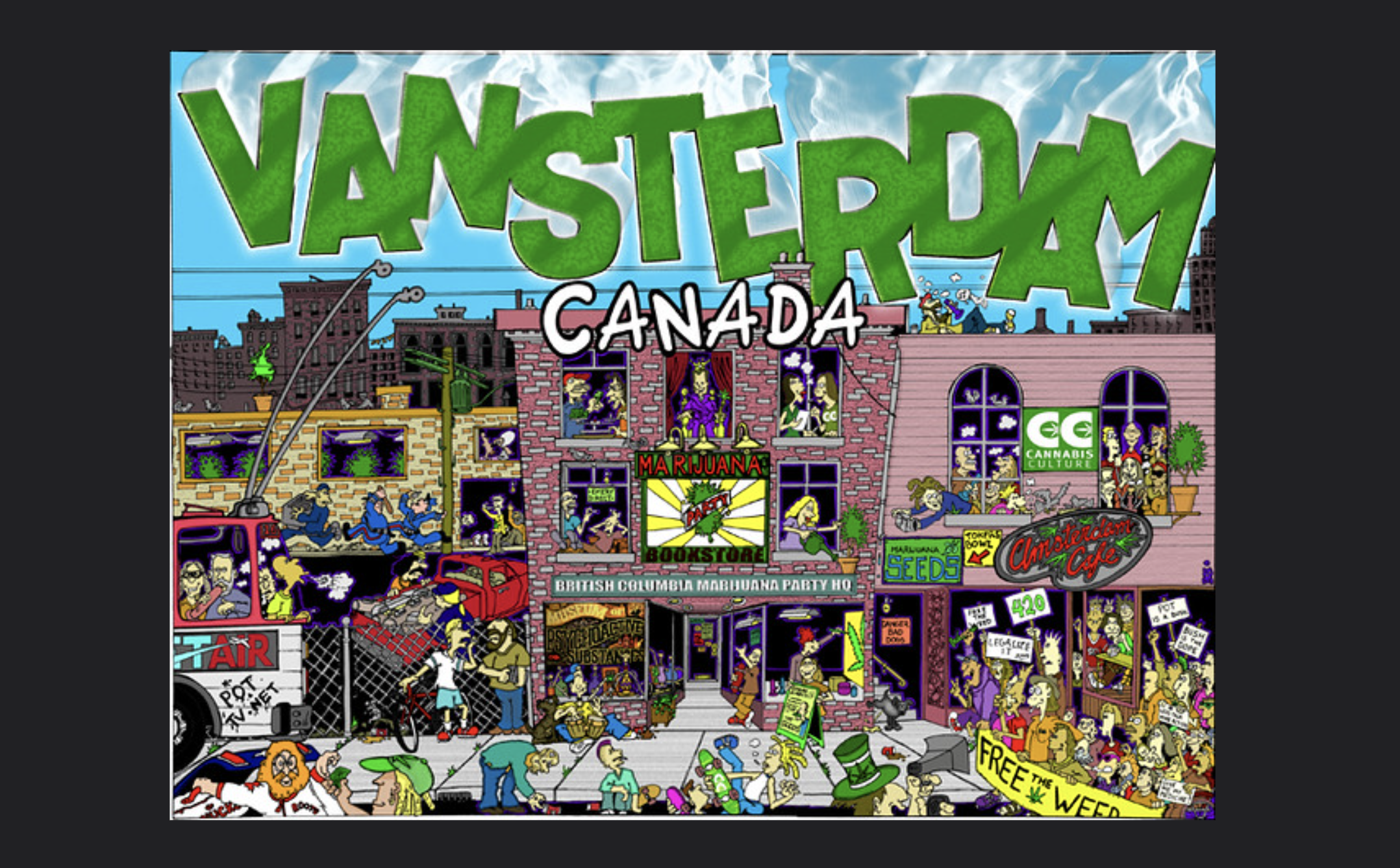Legalization For All Part 2 – 2012 Voters Guide

[Editor’s Note: This blog post is the opinion of the author and does not represent the views of the publishers and editors of Cannabis Culture, who all support I-502 in Washington.]
“Do not be deceived. It is a classic stratagem of genocide to camouflage their wars as law-and-order police actions.”
– Tim Leary, September 7, 1970, serving 20 years for a small amount of personal marijuana. From page 102 of “Confessions of a Hope Fiend” (1973) Bantam
“It’s a police sting in plain sight.”
– Jeffery Steinborn, long-time activist and NORML board member, when asked about Washington State “legalization” initiative I-502
“I can’t in good conscience take away (a medical marijuana patients) right to drive just so I can feel a little safer with my ounce at home – I already feel pretty at home. I don’t want to feel more in danger where I’m most likely to have a police encounter – which is on the highway.”
– John Toker, cannabis activist, in a debate with I-502 author Alison Holcomb
This article is a continuation of my earlier article “Legalization For All” which was an analysis of all the times I could find someone mention what legalization might look like.
After looking at every source on the subject I could find, I came to the conclusion that the “inclusive, non-monopolistic” model – the wine or coffee bean models – were promoted by activists since the early 1970’s, and the “exclusive, monopolistic” model of discriminatory licensing or “caps on the number of licenses” model was promoted by governments and cops only … up until Prop 19 was created in 2009.
Why vote against legalization?
The legalization of cannabis is the end-goal of cannabis activism, but not every form of legalization is worth supporting. For two extreme hypothetical situations that I’m almost certain every activist would agree with, we should not support legalization. For example, a form of legalization that allows only one legal grower, for there would be no incentive for the grower to grow quality cannabis, or cannabis of many varieties, and it would put everyone else out of work. We should also not support legalization that requires cannabis users to register and give up their dignity or some other rights (such as the right to travel, the right to have a family, the right to have a job, etc.) in exchange for the right to smoke freely.
These are extreme examples but they do have some basis in reality, as there is already a similar model that exists today in the form of the Canadian PPS Health Canada medical cannabis distribution model, which requires a person to ask permission from a doctor to get access to this non-toxic herb – thus sacrificing their medical autonomy for their legal safety. The Canadian government is currently looking at ways to limit the supply to one of a small handful of growers. As of right now there is only one official supplier of Health Canada cannabis: Prairie Plant Systems (PPS). The PPS cannabis is high in microbes and metals, low in THC and then irradiated (to kill all the microbes).
http://safeaccess.ca/research/flinflon/opnltr0105.htm#qandp
Nobody really considers this PPS/Health Canada model a form of “legalization” because it’s such an affront to human dignity … it’s a scam. For the same reason activists did not support this program and have not ended their efforts to legalize cannabis upon the creation of this program, activists should not support anything similar to this in the future.
There are only two good reasons to vote against a legalization model. The first is that some form of discriminatory licensing practice will be set up – or retained from the current med pot model – that will allow a lucky few license holders to control the entire market. Such a model will be difficult if not impossible to alter later on, as the concentration of wealth will be spent on maintaining the discrimination, as has been done in other monopolistic economies such as oil, nuclear energy, defense, cars, etc. This was the main reason I came out against Prop 19 two years ago.
The second is that the form of legalization is so undignified that it causes more problems than it solves. This is the situation we face today with the Washington State legalization initiative of 2012.
Oregon yes, Colorado yes, Washington State no
Ethical pot activism has nothing to do with only voting yes for a legalization initiative that is “perfect”. It’s actually about avoiding voting yes for a legalization initiative that will do more harm than good. I support the Oregon legalization initiative, which is quite progressive.
And the Colorado initiative, which isn’t perfect.
But does not suffer from all the problems associated with the Washington State initiative.
I can narrow down the problems with the Washington State initiative to two:
#1. The “per-se” DUID “automatic guilty if you test over 5 nanograms of THC” provision.
#2. The “absolutely everyone who wishes to make money within the pot economy has to register” provision.
Regarding Problem #1
The “Yes on I-502” and the “No on I-502” sides agree that the automatic assumption that anyone who has 5 nanograms (5 billionths of a gram) detectable in their blood stream is impaired is “bad law”. Drug impairment is based upon many factors, chief among them is dose, familiarity with the dose and familiarity with the activity. When the focus is on the amount of substance in the bloodstream rather than on impairment itself, then all sorts of people who are impaired for other reasons – lack of sleep, legal prescription drugs or caffeine, old age, emotional disturbance, illness, etc – may be at risk of being allowed to drive, while others who may have a little cannabis in their system but who are not impaired, will be punished unfairly.
The authors of I-502 could have simply included a “don’t drive impaired” awareness campaign to be paid for with cannabis tax dollars combined with encouraging police to conduct impairment testing (walk a straight line, touch your nose while eyes closed standing on one leg, count backwards from 100, etc.) but for whatever reason they instead opted for a process which would reinforce the stigma of “inherent impairment”.
The “Yes on I-502” people seem to believe that there will not be a dramatic increase in the number of people being busted for impaired driving under I-502 because there are not that many people who smoke on a regular basis:
Alison Holcomb, campaign manager for the initiative, is sympathetic to them, but said a DUI law should not be dictated by relatively rare cases. “We don’t establish public policy based on outliers,” she said.”
So Alison Holcomb’s argument is that “frequent users” are “rare cases”?!? Hmmm … I suspect she is under-estimating how many people use cannabis daily to minimize the negative impact of the per se component … I suspect the number of frequent users are anything but “rare”.
The number of medical marijuana users in the USA is estimated to be between “at least 1 million” to “5 million”.
http://drugsense.org/blog/drug-policy/how-many-medical-marijuana-patients-are-there
http://hightimes.com/news/mike_hughes/7131
And for every medical user that uses infrequently, there is probably many more “non-medical” (unsanctioned) users who use frequently. It would not surprise me if there were 10 million frequent users in the United States – about 1 in 3 cannabis users. This would mean that roughly one in 30 Americans are frequent users – or about 225,000 Washingtonians. All the police would have to do is aggressively target speeders, or those who have a tail light out, or those who run a red light or fail to stop completely at a stop sign or who’s registration sticker was partially obscured … and then they notice a strange smell, or perhaps some red eyes … and it’s “reasonable grounds” to march you off to the doctor’s office for a blood test. Under such an aggressive program, they could quite easily arrest as many people in one or two years for “impaired” driving as they have for all marijuana possession arrests in Washington State over the last 25 years:
If I-502 is used as a template for legalization all over the country, police could then set up roadblocks (legal in other US States but not in Washington State) and scoop up “impaired” drivers by the tens of thousands.
It’s quite reasonable to expect a worst-case scenario, because the US Federal and State Governments have been providing the cannabis community with worst-case scenarios from the beginning of cannabis prohibition to their more recent reactions to medical marijuana initiatives.
The acceptance of I-502 means an increase in the amount of acceptance of the “inherent impairment” myth – a myth designed to create discrimination against cannabis users and create an atmosphere where they are seen as a danger to themselves and others, unfit for work or athletic events or even to raise children – this myth is currently being pushed by all governments in North America today:
“Investigators are waiting for blood tests to determine if he will be charged with impaired driving.”
http://www.vancouversun.com/business/fp/yourmoney/Three+children+remain+hospital+after+hits+Alberta+school/7453093/story.html#ixzz2AigH8V9g
“Driving while high on cannabis is impaired driving!”
http://www.albertahealthservices.ca/2582.asp
“Driving under the influence of marijuana is impaired driving!”
http://www.simcoemuskokahealth.org/topics/drugsalcohol/Marijuana/ImpairedDrivingMarijuana.aspx
“New laws making it easier for police to investigate impaired driving due to alcohol or drugs and for prosecutors to prosecute impaired drivers come into effect in Canada on July 2, 2008. Fines and minimum jail terms for driving while impaired are increased and police are authorized to demand roadside physical sobriety tests and bodily substance samples at the police station. The new laws are part of the Conservative government’s Tackling Violent Crime Act which received Royal Assentin February 2008.”
http://canadaonline.about.com/od/canadianlaw/a/dui.htm
The above information runs counter to the fact that cannabis users are safe drivers – often paying more attention to driving, driving slower and experiencing less fatigue and road rage – as every major study on the subject has indicated:
http://www.cannabisculture.com/articles/4131.html
http://norml.org/library/item/marijuana-and-driving-a-review-of-the-scientific-evidence
According to attorney Jeffrey Steinborn (www.steinbornlaw.com 206-622-5117) the ability to amend the DUID provision in I-502 – what even the author of the initiative calls a “bad law” – will be impossible for two years – amendments of any initiative are not allowed for two years. Furthermore, Steinborn is unaware of an example of a government dialing back a DUID provision in the history of the United States.
Regarding Problem #2
The difference between the Feds going after every dispensary listed in Weedmaps and going after every person registered in I-502 is that Weedmaps only lists addresses of dispensaries – maybe an owner or two get in trouble. I-502 requires every grower, every clipper, every delivery person, everyone who hopes to keep working legally in the economy to provide their name, address, social security number, etc. – instead of a few dozen arrests resulting from a few dozen raids, the entire community can be arrested. It’s the drug war equivalent to the yellow star:
“Confidential records held by state authorities can and will be subpoenaed by federal law enforcement. Below are excerpts from U.S. v. Michigan Department of Community Health, United States District Court, Western District of Michigan, Case 1:10-mc-00109-HWB Doc #23 Filed 06/09/11. Michigan adopted a medical-marijuana law that included registration provisions. The law provided confidentiality for those who registered. The DEA subpoenaed those records. The federal judge who heard the case not only upheld the validity of the subpoena, he ridiculed the people who had imagined that a state law could trump the federal law in his ruling:
When Michigan adopted the [Michigan Medical Marihuana Act] with its confidentiality provisions, it, of course, only changed Michigan law. The very text of the MMMA recognizes that “federal law currently prohibits any use of marijuana” (MCL § 333.26422(c)). Thus, anyone who is not deluding himself or trying to push an agenda knows that the confidentiality provisions are only binding on the State of Michigan and its agents, not the federal government and its agencies. (At page 12 of slip opinion).
At page 13 of his opinion, the judge continues:
The nationwide federal law against marijuana, and the nationwide federal organizations that enforce that law, were the same the day after Michigan adopted the MMMA as they were the day before. They did not go away. Thus, no reasonable person can expect to have a right of privacy from federal investigation when they violate federal laws. The MMMA card affords its holder no greater cloak of privacy than did the emperor’s new clothes. To believe the contrary is simply to close one’s eyes to reality. But when you open your eyes, the emperor is still naked; the elephant is still in the room.
“I have great respect for those who support this initiative in Washington State. I respectfully suggest that they read it.”
– Jeffrey Steinborn
http://slog.thestranger.com/slog/archives/2011/11/15/why-you-should-oppose-marijuana-legalization-initiative-502
Furthermore, I-502 taxes cannabis at 100%!:
Even if legal markets were to ever see the light of day, the unreasonable tax structure would stop this initiative from having a positive effect in stopping the black market. Cannabis would be subject to a 25% tax once it’s transferred from producer to processor. It would be taxed again at 25% when transferred to the distributor. There would then be a third 25% tax if the cannabis is distributed to individual stores. Finally, the consumer would need to pay a 25% tax when purchasing the cannabis. This tax structure makes it impossible to compete with the flat rate offered by black market dealers.
As attorney Jeffery Steinborn put it:
“Who in their right mind would put their name down on a list as a pot dealer – a list the arrest-hungry Federal Government will get their hands on – for the right to deal $500 dollar ounces when anyone can walk down the street and get an ounce for $200 dollars on the black market?”
Other Problems
So what do cannabis users get in exchange for throwing frequent cannabis-using drivers, cannabis growers and cannabis dealers under the bus? They get the right to smoke pot in their own homes. How many people are getting busted for smoking pot in their own homes? Is the number higher than zero?
“NEW SECTION. Sec. 21. It is unlawful to open a package containing marijuana, useable marijuana, or a marijuana-infused product, or consume marijuana, useable marijuana, or a marijuanainfused product, in view of the general public. A person who violates this section is guilty of a class 3 civil infraction under chapter 7.80 RCW.”
http://www.newapproachwa.org/sites/newapproachwa.org/files/I-502%20bookmarked.pdf
You will still get busted for growing a single plant. You will now be able to receive a felony charge for passing a joint – that’s new!
I think the only “benefit” to I-502 is the symbolic passing of an initiative labeled “legalization”. If this were a real benefit, we would have seen reductions in the number of cannabis users punished after the “symbolic” victories of decrim, of medical marijuana and of the pharmaceutical industry introducing products such as Marinol and Sativex – we have not. Instead, we’ve seen a steady increase in the number of arrested despite all these reforms – in fact, the number of arrests have skyrocketed in the states that instituted “decrim”.
The lesson of “Decrim” is that just because something sounds progressive, doesn’t mean it is progressive. We must now add the word “legalization” to the list of things we should not automatically support.



